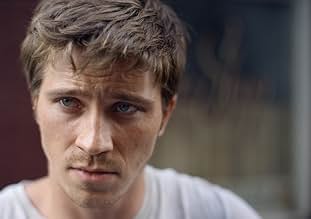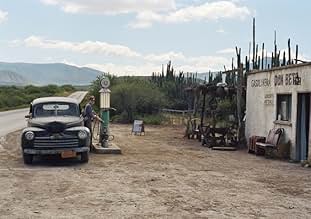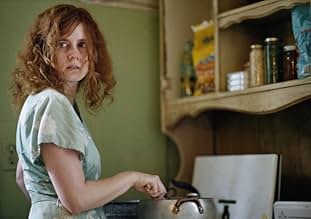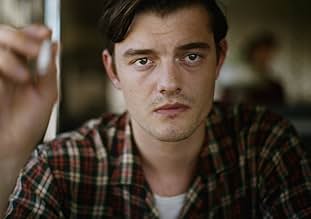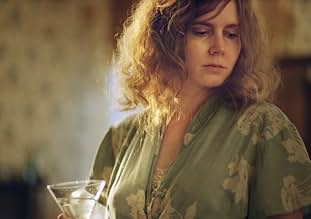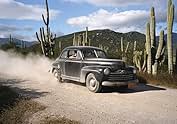युवा लेखक सैल पैराडाइस का जीवन स्वतंत्र उत्साही डीन मोरियार्टी और उसकी प्रेमिका मैरीलू के आगमन से हिल गया है. जब वे देश भर में यात्रा करते हैं, तो उनका सामना ऐसे लोगों से होता है, जो उनकी या... सभी पढ़ेंयुवा लेखक सैल पैराडाइस का जीवन स्वतंत्र उत्साही डीन मोरियार्टी और उसकी प्रेमिका मैरीलू के आगमन से हिल गया है. जब वे देश भर में यात्रा करते हैं, तो उनका सामना ऐसे लोगों से होता है, जो उनकी यात्रा को अमिट रूप से प्रभावित करते हैं.युवा लेखक सैल पैराडाइस का जीवन स्वतंत्र उत्साही डीन मोरियार्टी और उसकी प्रेमिका मैरीलू के आगमन से हिल गया है. जब वे देश भर में यात्रा करते हैं, तो उनका सामना ऐसे लोगों से होता है, जो उनकी यात्रा को अमिट रूप से प्रभावित करते हैं.
- पुरस्कार
- 2 जीत और कुल 4 नामांकन
- Walter's Wife
- (as Tetchena Bellange)
फ़ीचर्ड समीक्षाएं
Okay. Anyway..anachronisms...
I graduated high school in 1957. I remember the hair cuts for girls...I was one of them. Marylou did not wear the cut shown in the movie. No long layers. Long hair , yes, but not long layers. That's very contemporary...It's distracting. Ever hear of "pin curls?"
Restaurant servers did not start saying "Enjoy" until at least the 90's. Remember the carefully recreated restaurant toward the end of the movie...the middle aged, somewhat overweight waitress in the red uniform? Never would she have said "enjoy."
I think some of the cars seen rushing from one side of the screen to the other in the early part of the movie were not available in the late 40's. Looked like Chevys from about 1953.
So much was carefully done...the paint peeling in the old Victorians when Victorians were low rent...yes! That very restaurant mentioned above.
Come on, there are lots of us still living. Hire a consultant next time.
Making a film on such a book requires selection. Kerouac's hedonistic rampage across America, as selected by director Walter Salles, looks more mindless and sex-spiced than it did in the novel. Kerouac, as we see in his later works, was a hedonist with a conscience; a deadly combination which likely led to him drinking himself to death. Director Salles sees what he wants to see, a sex-crazed, drug-crazed, two-dimensional man. If this was truly the man represented in the novel, the novel would not have had the enduring quality that has made it literature.
I liked the way the 1950s was captured in the film. It was as close to perfection as you could get. The importance of jazz with its improvisation mirrors the lives of the travelers. The acting is good but the interaction is not. Maybe that was the point. There is no need for interaction in an age when the highest morality was based on selfishness. The movie may be okay to watch once, but I would prefer not to go down this road again.
Let's start with the good, shall we? The supporting cast are excellent, and special mention should be given to Tom Sturridge. He plays Carlo (Allen Ginsberg's alter ego), who spends much of the film intensely brooding over his broken heart, his writing, his wild ambitions. A quiet scene in which he tries to articulate his feelings towards Dean is one of my favourite in the whole film. Elisabeth Moss and Amy Adams also have blink-and-you-miss-it supporting roles, and they both easily outshine their higher-billed co-stars.
Unfortunately, that's about all the praise I can muster.
We are informed, time and time again, that Dean is charismatic, charming, infectiously reckless and dangerous and sexy. Sal, Carlo and Marylou can't get enough of him. He makes their lives better, more complete, more exciting. And yet Hedlund, for whatever reason, completely fails to shine on the screen. Good looking, yes, but charming he is not.
Reading the film's trivia page, previous attempted adaptations of Kerouac's book had the likes of Marlon Brando and Brad Pitt in mind to play the role of Dean. It makes me disappointed, embarrassed and slightly angry that the film's producers, in their search for our generation's equivalent to Brando and Pitt, settled on Garrett Hedlund. Was there really no one else available? What about Aaron Taylor-Johnson? Or Sam Claflin? Or Miles Teller, maybe? Or anyone who actually manages to make beautiful lines of prose sound more exciting than the phonebook? Objections have also been raised about some of the other main cast members, but although none of them - with the exception of Sturridge - lit the screen alight, none of them ruined the film either.
But of course, this film was always going to disappoint. It was always going to disappoint because it was built on a shaky foundation. The film's underlying problem, the problem that was always going to be a problem even if everything else was perfect, was what the script isn't good enough.
Any film worth watching tells you what its characters want. It's a character's pursuit of his/her personal goal that drives the whole plot. There was no sense here that the characters wanted anything in particular. There was talk of writing, but only in passing, as a way to spark a conversation in between drags of a joint. The characters talked, and laughed, and drank, and danced and travelled. But none of it really mattered because, in the end, none of them really changed.
I'm aware, of course, that Kerouac's book is a much-loved piece of literature, which leads me to conclude that it must be much, much better than this film. If that's the case, then fine. Read the book. Love the book. But it's not enough to trust that an audience's love for a story told in one medium will necessarily transfer into a love for the story in a different medium. The film feels like it relies too heavily on people knowing - and liking - the characters of the book, and in doing so fails to deliver an adaptation worthy of its source material.
So, everyone already knows the story well, no; chances are, if you're like me, you read the book and yet remember almost nothing of the story. The book burns through its shreds of storyline as if they were just tinder for the blaze of its energy; the real fuel is the pacing, even with all its redundancy. It's the momentum that sucks us into the breathless chaos of Kerouac's world. We come away impressed by the energy, not the content.
Film could certainly have been used to amplify this effect, but this is not that film. Instead, we have a more conventional treatment, focusing on character development. It's a nice production, with an attractive cast. But the story comes at us very differently from the book experience. The manuscript has been rewritten to add breathing space and objectivity. We see Sal Paradise, only half-formed at the start of the story, pull himself together to become a serious writer. We see the endlessly exuberant Dean Moriarity ultimately coming to grips with the progressive self- destruction attributable to his amorality, and suffering. This might be a fair reading of Kerouac's ultimate feelings about that part of his life, but it's not the feeling that Kerouac shares with us in the book. We have lost our innocence; our last chance to revisit it, even for a few hours, is taken away.
I'm not going to rage against this re-conception of the story, though, because it makes other changes from the book that might be improvements. Several episodes that were censored from the book are restored in the film. (Some discussion of this at http://www.univie.ac.at/Anglistik/easyrider/data/BeatEros.htm). So the movie is more historically accurate, and far more sexually explicit than the book. (That could also explain its delayed US release). In one poignant scene, Carlos Marx (Allen Ginsberg) is whining to Sal about how vulnerable he feels due to his poorly-returned love for Dean. To the best of my recollection, that conversation was not in the book (please tell me if you believe otherwise), but was expressed in a private letter from Ginsberg to Kerouac many years after the fact. This kind of thing changes the emotional flow of the story, certainly, but it adds depth, too.
Few of us will actually suffer nostalgia for the gritty overindulgences of the Beats. But remember, this came at a time when society was absolutely saturated with the message that everyone should be "normal," safe, predictable. Without the tiny minority of Beats attacking that message, and specifically without On The Road to chronicle that attack, the cultural revolution of the 1960's would have been even more difficult than it was, and perhaps less effective. Good, bad, or ugly, we must embrace this story.
क्या आपको पता है
- ट्रिवियाThere have been many previous attempts to get the film made since the 1950s. Author Jack Kerouac sought to have himself play Sal Paradise opposite Marlon Brando as Dean Moriarty. In 1990, Francis Ford Coppola was set to direct with Ethan Hawke as Sal, Winona Ryder as Marylou and Brad Pitt as Dean. Later, Joel Schumacher was attached to direct with Billy Crudup as Sal and Colin Farrell as Dean. Gus Van Sant was later involved as a potential director.
- गूफ़In the opening scenes, Sal Paradise hitches a ride on the old farm truck. The large, round hay and straw bales in the background weren't available until 1972, when Vermeer built and sold the model 605 baler. Even then, the bales were much smaller and looser until the late '70s or early '80s on United States farms.
- भाव
Sal Paradise: The only people for me are the mad ones, the ones who are mad to live, mad to talk, mad to be saved, desirous of everything at the same time, the ones who never yawn or say a commonplace thing, but burn, burn, burn like fabulous yellow roman candles exploding like spiders across the stars.
- इसके अलावा अन्य वर्जनThe film was re-edited for North American release following its premiere at the Cannes Film Festival and its French theatrical release because, according to director Walter Salles, that version was "rushed". The new cut is thirteen minutes shorter but contains more scenes and Salles says he has no preference between the two.
- कनेक्शनFeatured in At the Movies: Cannes Film Festival 2012 (2012)
- साउंडट्रैकThat's It
Composed and produced by Gustavo Santaolalla
टॉप पसंद
- How long is On the Road?Alexa द्वारा संचालित
- When Sal, Dean, Carlo and the girl were having a party at about the 20-minute mark, Dean was breaking up inhalers to soak the wicks in liquid for them to drink to take as drugs. What was the drug in the wicks? Benzedrine?
- Is this the first film adaptation of 'On the Road'?
विवरण
- रिलीज़ की तारीख़
- कंट्री ऑफ़ ओरिजिन
- आधिकारिक साइटें
- भाषाएं
- इस रूप में भी जाना जाता है
- En el camino
- फ़िल्माने की जगहें
- Bariloche, Río Negro, अर्जेंटीना(uncredited)
- उत्पादन कंपनियां
- IMDbPro पर और कंपनी क्रेडिट देखें
बॉक्स ऑफ़िस
- बजट
- $2,50,00,000(अनुमानित)
- US और कनाडा में सकल
- $7,44,296
- US और कनाडा में पहले सप्ताह में कुल कमाई
- $39,550
- 23 दिस॰ 2012
- दुनिया भर में सकल
- $96,17,377
- चलने की अवधि2 घंटे 4 मिनट
- रंग
- ध्वनि मिश्रण
- पक्ष अनुपात
- 2.35 : 1
इस पेज में योगदान दें









